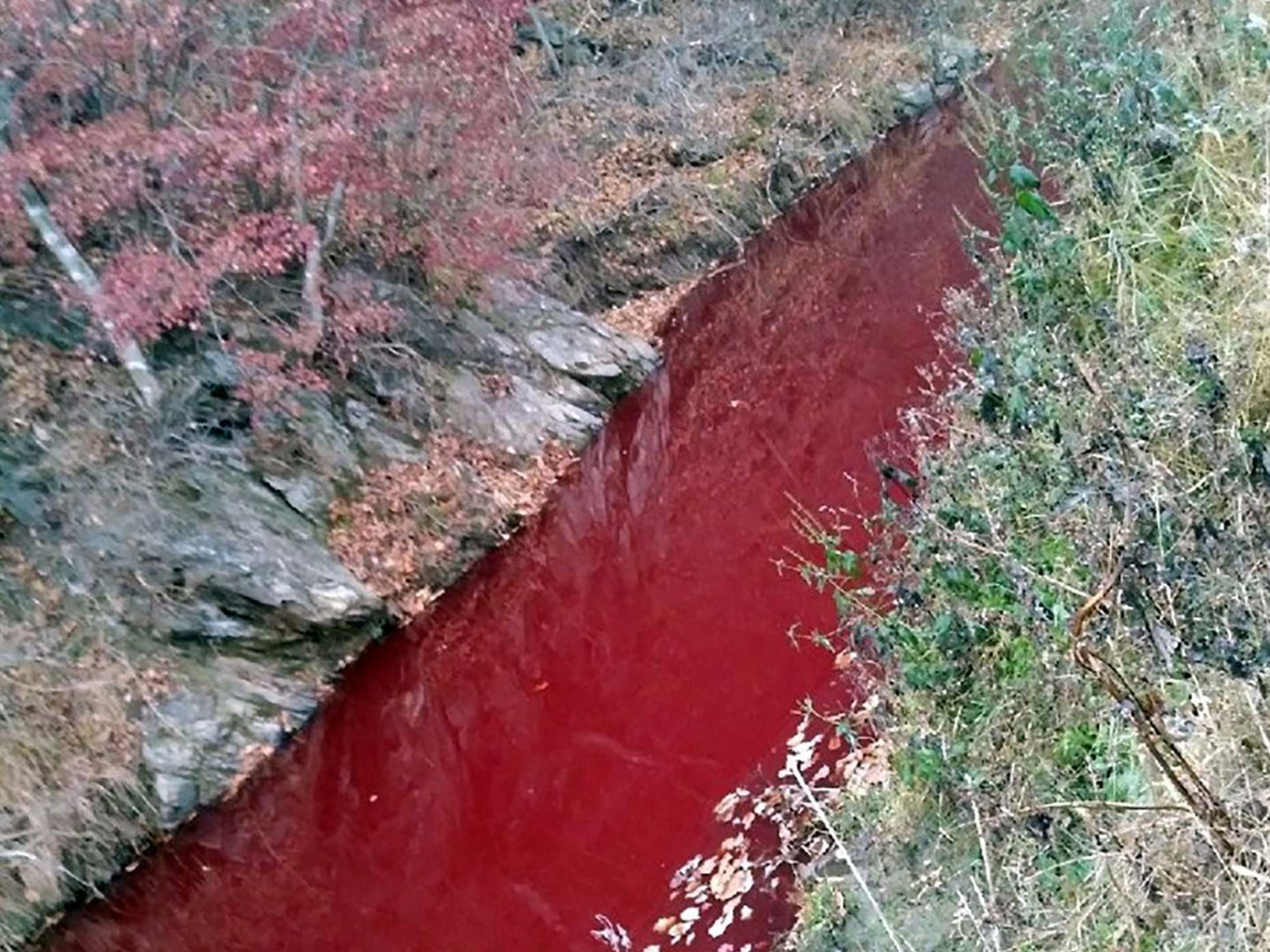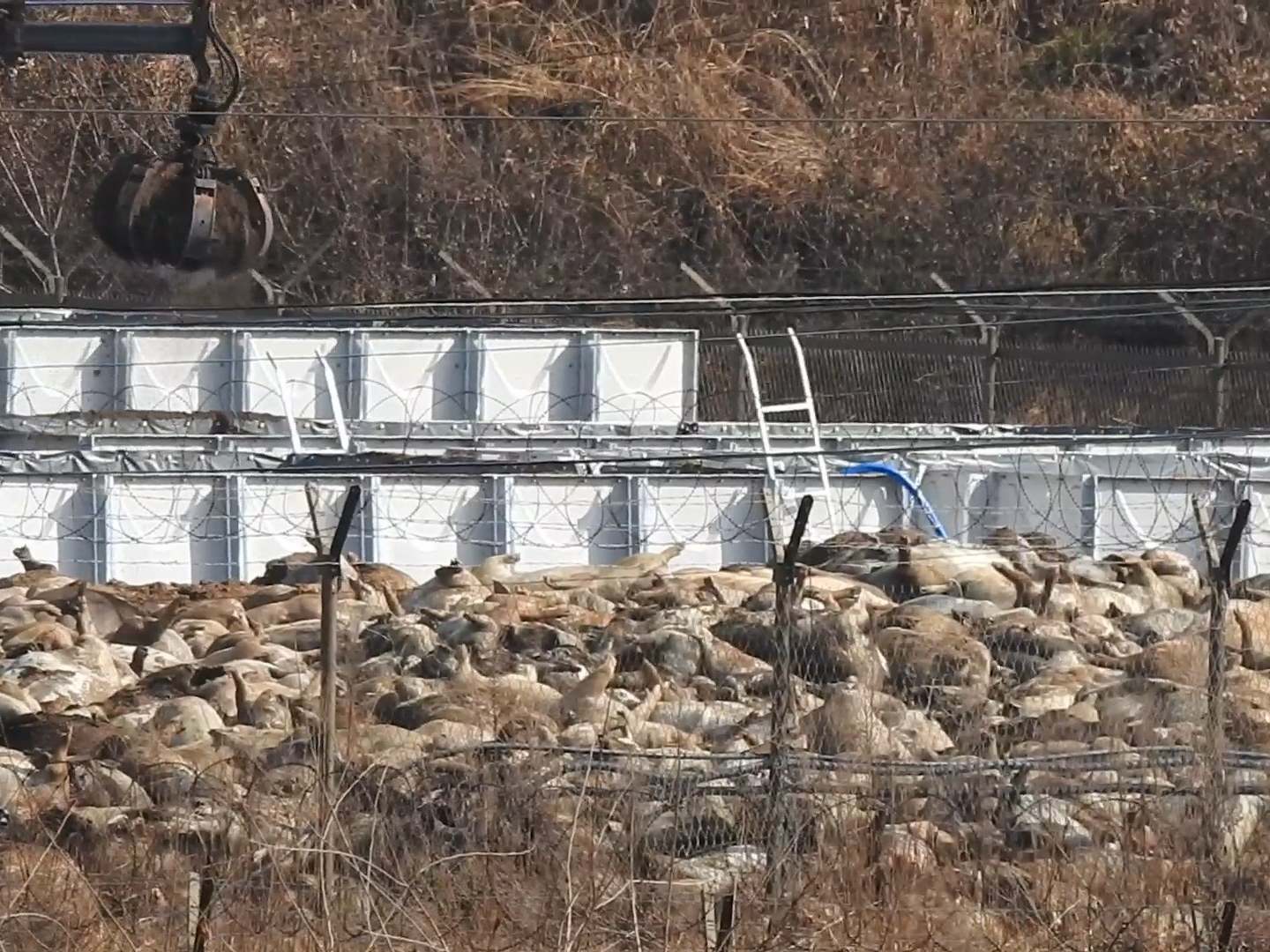South Korean river runs red with blood of 47,000 slaughtered pigs
'This should not have happened,' says local environmental group

Dramatic images have emerged of a South Korean river running red with the blood of thousands of slaughtered pigs, drawing attention to the Asian Swine Flu (ASF) crisis plaguing the region.
A local environmental group shared photographs of a polluted tributary to the Imjin River, near the border with North Korea, after a botched operation to cull and dispose of pig carcasses.
According to the Korean news agency Yonhap, officials in Yeoncheon County had killed 47,000 pigs in a bid to curb the spread of ASF and were preparing to bury the bodies on Sunday and Monday.
A delay in the production of plastic containers used for the burials, however, meant the bodies were left exposed to the elements in the back of trucks and, photographs showed, on the ground in a car park at a border military facility.
Officials said heavy rains caused the blood from the carcasses to run off the site into streams in the surrounding area, leading to the shocking scenes that were then shown - albeit with the blood blurred out - on Korean TV on Tuesday evening.

The agriculture ministry dismissed concerns that the blood could spread infection to other farms downstream. Yeoncheon is among the towns to have confirmed cases of ASF since the outbreak began in mid-September.
The pigs were already disinfected as part of the quarantine and slaughter process, the ministry said, adding that plans were being made “to inspect all of the 101 burial sites to determine whether they are properly under management”.
But Lee Seok-woo, chief of the Yeoncheon Imjin River Civic Network NGO which shared images of the blood-red streams, told AFP the incident had “many people living in the area anxious and worried”.
He said local farmers had been unable to work due to the “unbearable smell”, adding: “This should not have happened.”
South Korea has culled more than 380,000 pigs since reporting its first-ever cases of ASF, which is believed to have spread across the border from the North.
The disease is highly infectious among pigs and fatal in almost all cases, but experts say it cannot be passed on to humans.
Seoul says its containment policies have been successful, and that. there have been no new cases since 9 October.
But wild boars continue to be found dead with the infection near the border with North Korea. The army has been ordered to shoot boar crossing the border on sight.
North Korea has been described as a weak link in Asia-wide efforts to curb the spread of ASF. Pyongyang has refused to release any detailed reports on the extent of the outbreak there, but observers have reported huge spikes in the price of pork and the South Korean spy agency described pig herds in one Northern province as “annihilated”.
Vietnam has suffered particularly badly, culling 5.7 million pigs since its first case in January this year. China, which has been fighting the disease since August 2018, says it has slaughtered 1.2 million animals and blames the outbreak in part for a historic slowdown in the country’s economic growth.
Join our commenting forum
Join thought-provoking conversations, follow other Independent readers and see their replies
Comments
Bookmark popover
Removed from bookmarks